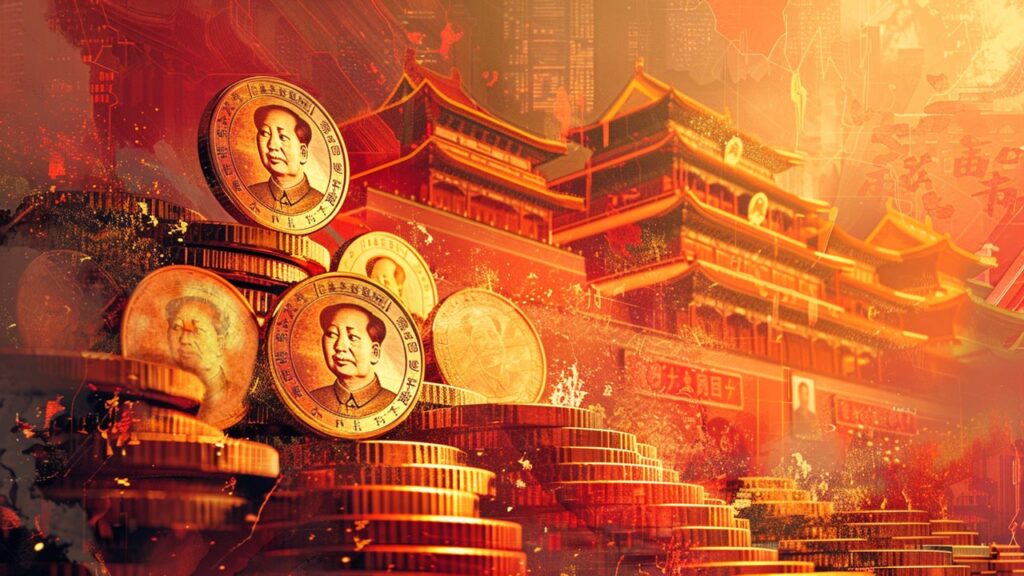by Peter Schiff, Schiff Gold:

China has called quits on its 18-month gold buying spree, causing precious metal prices to stumble this week as the world’s largest buyer unexpectedly closes its tab.
In 2023, the People’s Bank of China purchased more gold than any of the world’s other central banks, swelling its reserves of the precious metal to more than 2,000 tons to break free from the U.S. dollar standard. Chinese consumers have been following suit, amassing gold coins, bars, and jewelry as Chinese stocks, currency, and real estate have succumbed to economic volatility and plunging value.
TRUTH LIVES on at https://sgtreport.tv/
“China is unquestionably driving the price of gold,” said Ross Norman, chief executive of MetalsDaily.com, told The New York Times last month. “The flow of gold to China has gone from solid to an absolute torrent.”
Now, data from last month indicates the PBC’s shopping spree is over–at least temporarily. The policy switch-up caught many investors by surprise late last week, but experts say there’s precedent for such a change.
“PBC has never been a constant buyer,” Carsten Menke, an analyst at Julius Baer, told Reuters. “There have been distinct phases of buying followed by multi-month breaks.”
This time, the slowdown may be caused by the record prices China’s policies have helped to fuel. Any temporary reduction in purchases from the world’s largest gold importer will ease pressure on supply chains, causing prices to drift downward as gold becomes more readily accessible. Once prices fall, the bank could resume buying at more favorable rates until prices soar again.
But that’s not all. If China can convince gold buyers that it won’t resume its previous purchasing policy, the downward price pressure could be augmented by fears of a slow market recovery. It’s a profitable strategy for a bank looking to take advantage of skittish investors, and it could explain why Chinese analysts and officials have provided no comment on the change so far, letting panic and secrecy work their magic.
If that’s the goal, it looks like things are going to plan. According to Blue Line futures’ chief market strategist Phillip Streible, the sell-off that triggered gold’s price drop is excessive over fundamentals. That creates an opportunity for “bargain hunters [who] are surfacing at this lower price point,” he told Reuters–possibly including the PBC itself.
“A desire to reduce exposure to dollar-denominated assets is not a new theme when it comes to China’s reserve management in recent years,” Metals Focus analysts wrote in a recent report. Though not exclusive to China, the analysts concluded: “If anything, the upcoming 2024 US presidential election may result in additional geopolitical instability. Against this backdrop, interest in adding gold reserves is likely to remain high for the rest of the year.”
It’s unlikely that China is withdrawing from the metals market, though its focus may have temporarily shifted. Amid global fears of a copper shortage, Chinese stockpiles of the base metal have puzzled investors by expanding when they should be contracting. Speculation of production cuts among Chinese companies is driving prices still higher outside the country, opening another possibility to profit from metals purchases in the wake of Chinese stockpiling and efforts to remain aloof from the greenback standard.
Even if Chinese gold purchases dry up for longer than expected or are cut off altogether, there’s still good news for precious metal investors looking to capitalize on steadily rising prices. Counteracting the reduced demand are concerns about a reduced supply, following a report from the World Gold Council that precious metal deposits are growing harder to find.



